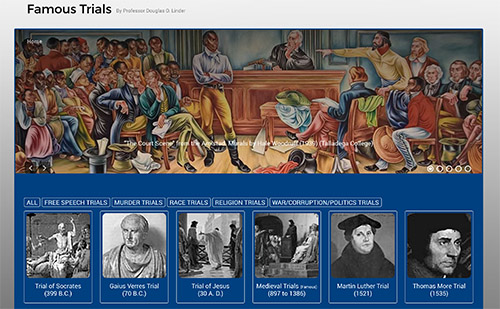×
Check-out the new Famous Trials website at www.famous-trials.com:

The new website has a cleaner look, additional video and audio clips, revised trial accounts, and new features that should improve the navigation.
(Close this pop-up window to remain on this page)
Why No Lay
Witnesses
I called in every person that I understood knew either one of these
boys, at once, and placed them under oath and asked them what they knew
about the mental condition of the defendants.
If I had not, the defense in this case would have been insanity,
and not a mental disease that goes all around insanity in order to avoid
a jury trial. Instead of having one witness perjure herself as Miss Nathan
did, we would have had a flock of them called in to perjure themselves.
Supposing the State's Attorney had not talked to Miss Nathan, and didn't
have her statement that Loeb was a perfectly rational, normal boy, one
of the manliest boys she had ever met, a perfect gentleman at all times.
How could I have destroyed her on the stand, if I didn't have that statement?
I don't wonder that the senior counsel, in his wisdom gained through
many years of practice, made the proposition to the State, when he found
out what the State had done in the way of preparation: "Don't you
call any of your lay witnesses, and I won't call any of mine."
And I told him: "Bring on your lay witnesses. The law is well
fortified."
Why didn't the State call more lay witnesses? Why didn't I call
the brothers of the defendants? Why didn't I call Loeb's valet, whose statement
I took down in the State's Attorney's office? Why didn't I call the employees
of both families, with all of their fraternity brothers, in addition to
those that I did call?
Clarence Darrow knows why I didn't call them. Because if I put them
on the stand, if I put Miss Nathan on the stand, I was bound by her perjury.
They are my witnesses. I vouch for their truthfulness when I put them on.
And I knew they had all been up in Clarence Darrow's office, as
Miss Nathan had. I knew that he would not call them, because I could destroy
them.
